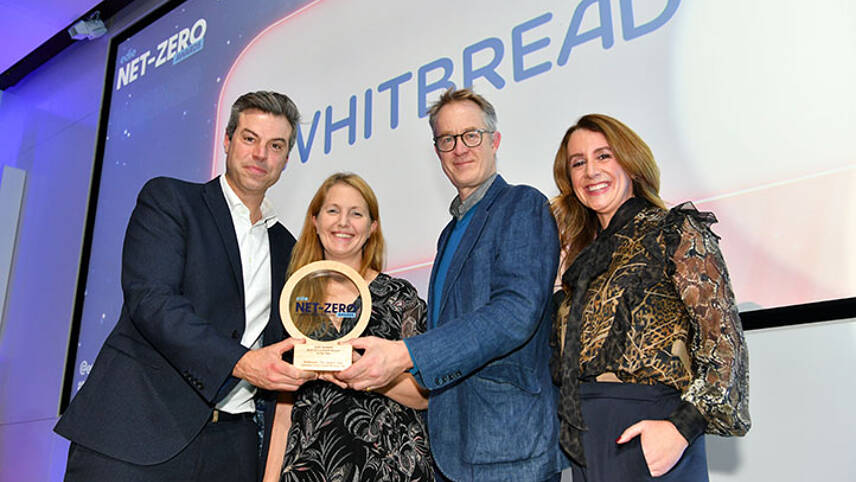This premium content is exclusive to edie Members.
To find out more about edie Membership, please click below.
If you are an existing member, login here

At a glance
Who: Whitbread
What: Electric-only hotel
Where: Swindon, UK
When: Opened October 2023
Why: Reduce reliance and emissions from natural gas
The challenge
Whitbread’s emissions reduction target has been verified by the Science Based Target Initiative (SBTi) and aligns with a 1.5C pathway, but in order to reach these targets, the burning of natural gas for water and space heating, which accounts for 70% of the company’s carbon footprint, will need to be massively reduced.
The solution
The electric-only Swindon Town Centre Premier Inn is on track to open in autumn 2023, within budget. Whitbread believes that the Inn will be the prototype model for the next generation of planned hotels, with sustainability acting as a principle design metric.
Advances in commercial air-source heat pump technology has given Whitbread sufficient confidence to build a large newbuild hotel without a connection to a natural gas supply. This 194-bedroom Premier Inn hotel in Swindon Town Centre is the first from Whitbread to come without this natural gas connection.
The electric-only building follows a Passivhaus-influenced ‘fabric first’ design philosophy aimed at optimising the energy requirements for space heating in order to reduce demand. A core objective of the building is to minimise heat exchange with outside air, which instead allows the building to be heated using sunlight and heat generated as a byproduct of activity in the building. The heat from these outputs are then combined with an air source heat pump (ASHP) which can also cool the building if needed.
The design process is tracked through the Greater London Authority’s (GLA) ‘Be Lean, Be Clean, Be Green’ energy hierarchy. This helps inform the optimisation of design decisions to reduce emissions. ‘Lean/Clean’ design features include low external envelope u-values (thermally efficient), low air permeability (relatively airtight), low energy LED lighting with lighting controls, metering connected to a battery monitoring system with auto monitoring and targeting of energy.
The ASHP is also listed as a green feature alongside an air-to-water Mitsubishi Q-Ton CO2 Heat Pump for hot water services, and solar photovoltaic panels onsite. These technologies all combine to reduce operational energy costs and power the building services with zero-carbon technologies located onsite.
The learnings from its design and operational performance will influence the specification for the next generation of hotels and the scope for retrofitting the wider estate.
The results
Whitbread is not currently able to publicly share the estimated results.
Whitbread also notes that the site will be monitored and performance measured to help showcase that the solutions are affordable, and will be used to inform future newbuilds and possible retrofits. Whitbread notes that reducing the reliance of natural gas for its 847 hotels and restaurants will be crucial to delivering its net-zero targets.
The Organisation
Whitbread is the owner of the Premier Inn brand and has an estate of 847 hotels in the UK and Ireland – representing 83,500 rooms. The company is aiming to expand to 125,000 rooms but is also committed to reaching net-zero by 2050. This includes zero Scope 1 and 2 emissions by 2040 which means that its trading and new build estates will need to be decarbonised.
Whitbread has been designing low energy hotels since 2008 and monitoring the performance of these buildings to inform the specification of new Premier Inns. The company has committed to only purchase renewable electricity by 2026, already purchases only renewable electricity for its owned UK & Irelands estate. Whitbread has also introduced solar PV across its freehold estate and has been trialling emerging technologies such as battery storage and commercial heat-pumps in select hotels.
The Judges said:
“The judges were impressed by its full consideration of energy demand and building usage, combining Passivhaus principles with a range of low carbon technologies, its potential to be replicated, and the role this project could play in demonstrating the use of renewable heating and cooling technologies to members of the public using the hotel.”
© Faversham House Ltd 2024 edie news articles may be copied or forwarded for individual use only. No other reproduction or distribution is permitted without prior written consent.

